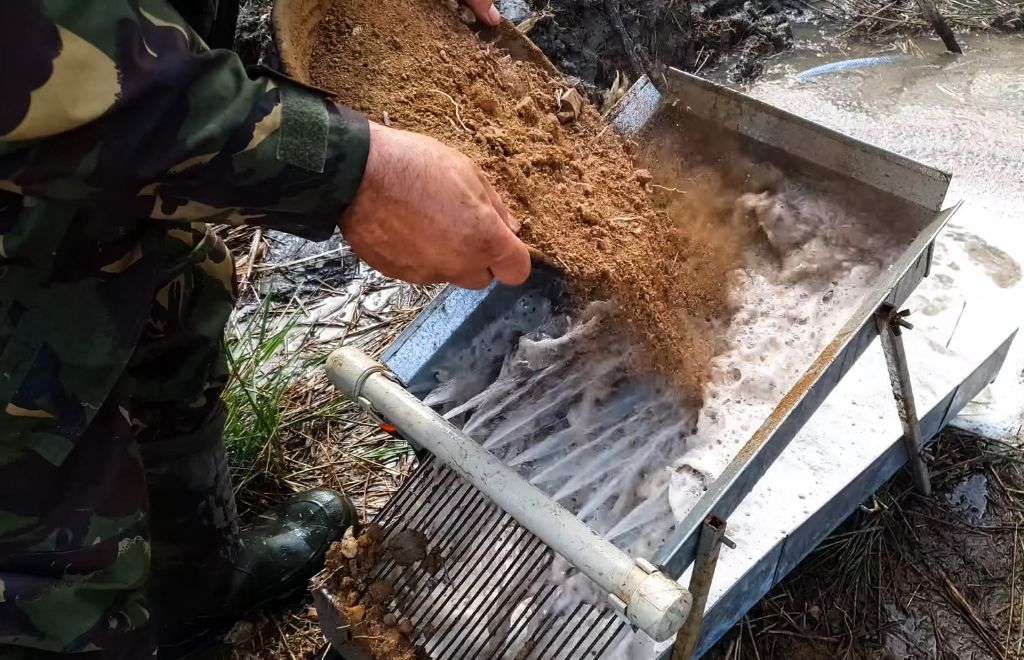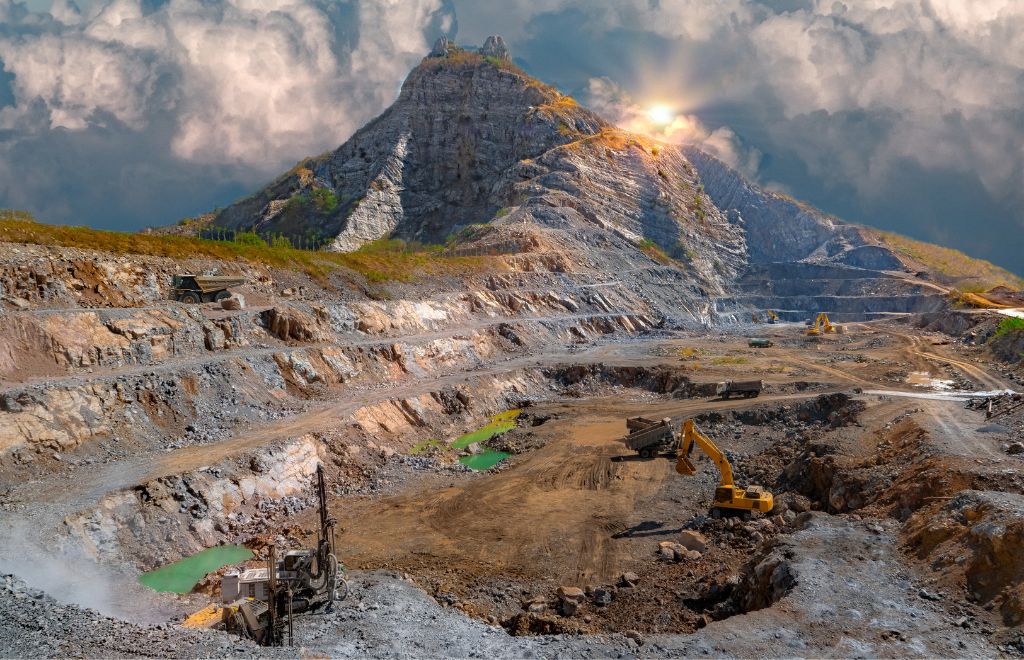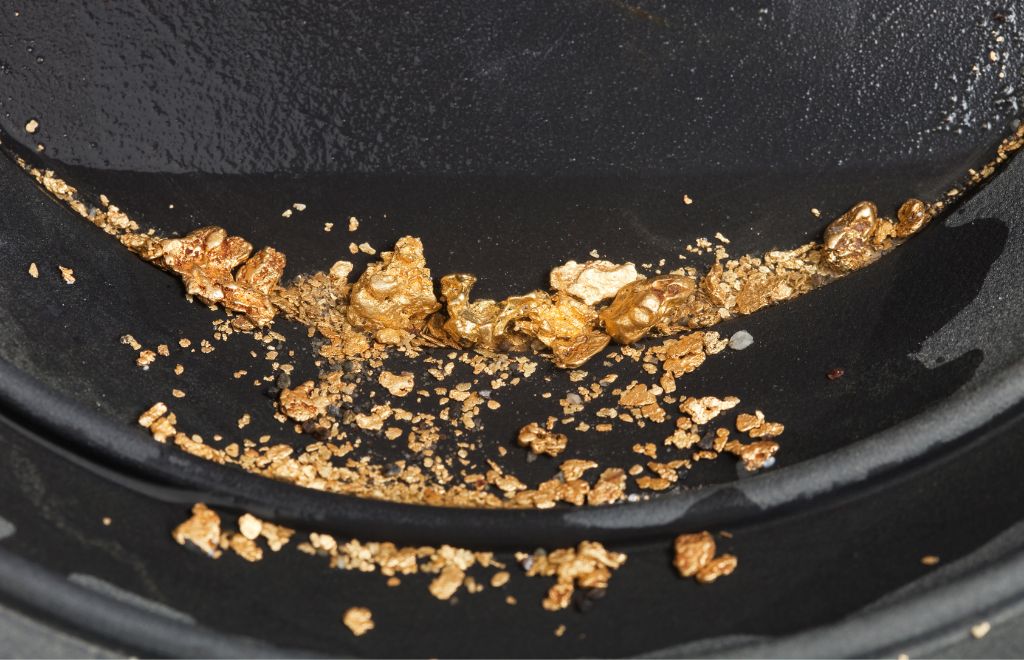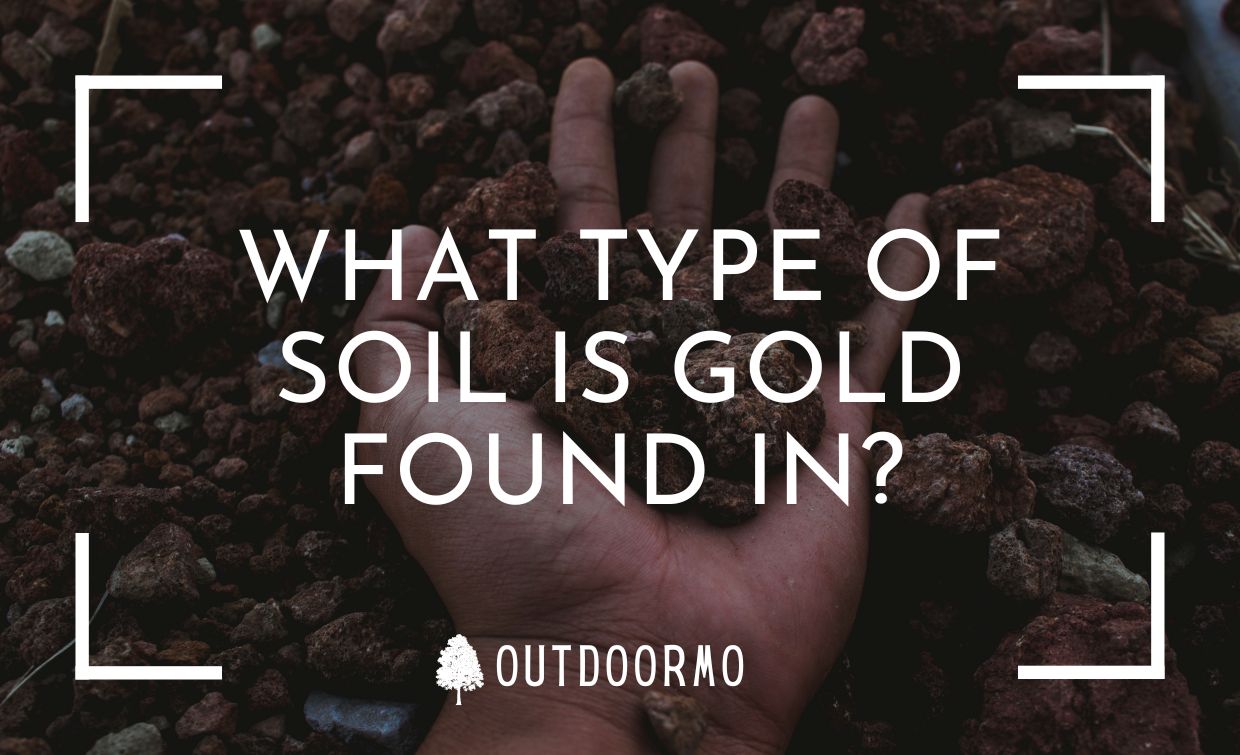Everyone knows that gold is found in the ground, but have you ever wondered what type of soil is gold found in? The answer may surprise you. Gold is actually found in a variety of different soils, from sandy loam to clay.
However, gold is most commonly found in areas with high concentrations of other minerals, such as quartz or granite. Gold is also often found near the surface of the ground, making it relatively easy to mine.
So, without further ado, let’s look at some facts and know where you can find the valuable metal. We all know money doesn’t grow on trees, but does gold grow under your feet?
You may also enjoy:
What Type Of Soil Is Gold Found In?
There is not a single type of soil where gold can be found. Instead, it tends to be found in various soils, with silt and clay being the most common.
But, we all know how rare gold is, and it is not found just anywhere. The key to finding fine gold is learning more about soil and weather conditions – not just digging holes in the ground.
Luckily, sometimes Mother Nature gives us a few hints of where this valuable metal can be found.

How To Search For Gold In Soil?
Everything requires hard work. Right? The same goes for spotting nearby gold in the soil.
First, it is crucial to have some knowledge of geology and mineralogy. Understanding how rocks, minerals, and soil form can give you an idea of where to start looking for gold.
Another important aspect is researching where you plan on prospecting – this includes learning about past gold rush discoveries in the area and the land’s geology.
Then, it’s time to get your hands dirty – literally.
To find gold, a great clue to look for is ferrous soil (containing high iron concentration). Ferrous soil has orange-red color due to the oxidation of iron and is commonly found in areas where gold is deposited. We call it iron staining.
Another option is to look for black sand deposits. Soils associated with gold deposits are typically red or black and may contain other metals.
Of course, none of this guarantees gold may be nearby, but they are promising indicators.
Once you have found potential gold-bearing areas, it’s time to start digging and sifting through the soil to see if any gold is present.
You can use metal detectors to help with the search, but remember that not all gold will be detectable with a metal detector, so don’t rely on them too heavily.
Regardless of your method, it is essential to remember that finding gold, and any precious metal, takes patience, persistence, and a bit of luck.
At What Depth Do You Find Gold In Soil?
There is no set depth or distance at which gold is found in soil. The metal can be deposited near the surface or deep underground. However, based on expert estimations, it is believed that the average depth at which the majority of large gold deposits can be found could be anywhere between 1,200 meters to as deep as 3,000 meters below the Earth’s surface.
But for the causal prospector, that isn’t too much of a worry unless you happen an extensive collection of mining equipment.

What Are The Common Methods To Extract Gold From Soil?
Once you have found the existence of nearby gold, it’s time to extract it. There are a few different methods for extracting it, including;
- Panning
- Cyanide leaching, and
- Mercury amalgamation.
Gold Panning uses water to separate gold particles from soil or sediment by moving the material around in a pan.
This is the most common method used by small-scale prospectors. But you might be curious about which gold panning kit is best – metal or plastic?
Well, it’s up to personal preference, but some say that plastic pans have the potential to trap finer gold particles than metal pans.
Cyanide leaching involves using a cyanide solution to dissolve gold particles from the soil.
Mercury amalgamation involves using mercury to attract and collect the gold particles.
All these methods have their advantages and disadvantages, so it is up to the individual prospector to decide which method works best for them.
Can I Find Gold In My Backyard?
There are always some possibilities, but it highly depends on the geological factors of your area. If you live in an area with a history of gold mining or discoveries, there is a higher chance for potential Gold deposits in your backyard.
But again, it ultimately depends on the location and geology of the land. It never hurts to do some research and give gold prospecting a try!
Who knows, you may strike gold in your backyard.

FAQs
Can Gold be found in all soil?
The answer is surprising, yes – you can find traces of real gold in just about any type of soil or sediment. But it is not always in high enough concentrations to be worth extracting or mining. It really depends on the location and geology of the soil.
Is it legal to extract Gold from the soil on my land?
There is no exact answer to this question, as regulations vary by location. Sometimes, you may need a permit or license to extract gold. It is best to be informed and follow all necessary procedures. Doing so can help prevent any legal issues that may arise.
Can I find gold nuggets in the ground?
It is pretty difficult to find them in the ground, as they are not as common as fine particles or flakes of gold. Gold nuggets typically form in areas with high amounts of flowing water, such as streams or rivers. These areas may indicate the presence of gold, and thus detecting natural gold nuggets could be somehow easier for you.
Finding Gold In A Nutshell
The search for gold can be long and arduous, but the potential payoff can be worth it.
Gold is most commonly found in silt, sand, and ferrous soil or sediment. Black sand deposits are also known to contain gold particles, but they vary based on location and geological factors.
Understanding geology and researching potential gold-rich areas can increase your chances of success.
And always use caution and follow regulations when extracting gold from the soil. Happy prospecting!

